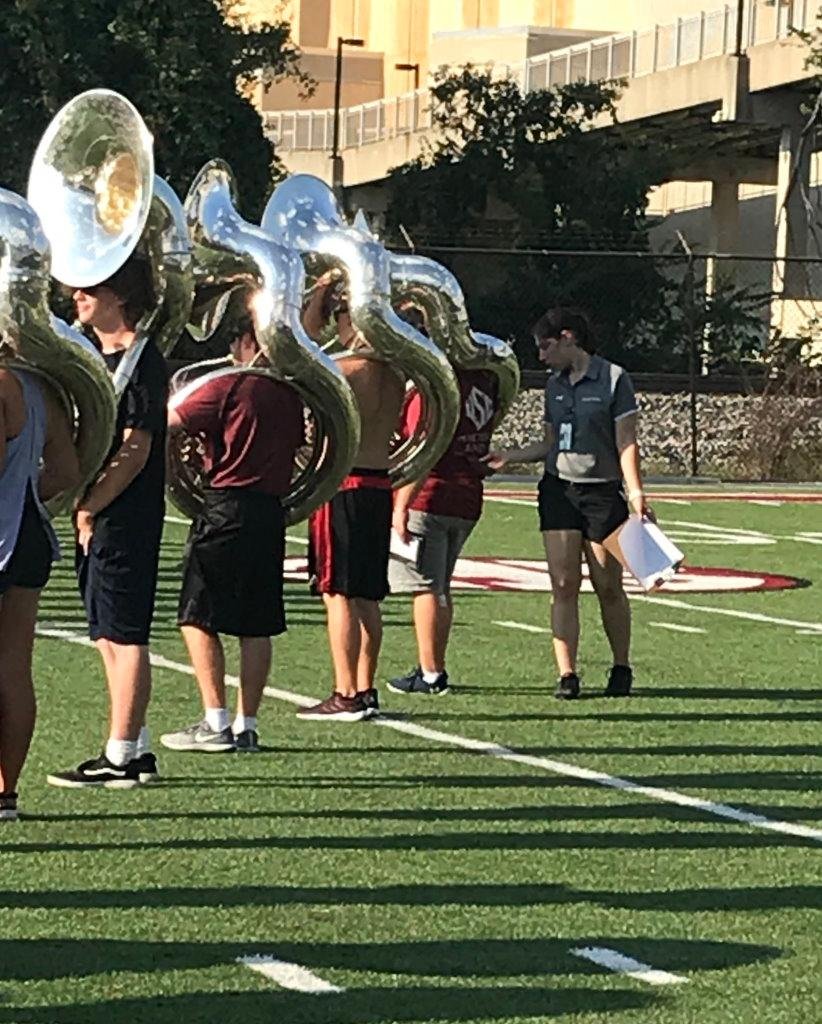Welcome to the rhythmic world of marching band, where music meets movement in a symphony of precision and passion. As the drumline sets the beat and brass instruments fill the air with melodies, one cannot help but wonder: is marching band more than just a musical performance? Join us as we explore the question: Is Marching Band a Sport?
The Physical Demands of Marching Band
Marching band may not involve tackling opponents or running with a ball, but don’t underestimate the physical demands it places on its participants.
From hours of rigorous rehearsals in all weather conditions to executing intricate choreography while playing an instrument, marching band requires stamina, agility, and precision.
Members must maintain proper posture, control their breathing for extended periods, and coordinate their movements with fellow performers – all while keeping in step and staying in tune.
The constant movement involved in routines engages muscles throughout the body, demanding strength and endurance from each participant.
While some may argue that traditional sports like football or basketball require more intense physical exertion, anyone who has marched a full halftime show knows the sweat and energy it takes to perform at a high level.
In essence, the physical demands of marching band are unique yet undeniable.
The Athletic Training Involved in Marching Band

Marching band may not be your typical image of athleticism, but don’t underestimate the level of physical training involved in this musical activity. Members spend countless hours perfecting their craft through rigorous workouts and drills.
From intense cardio sessions to strength training exercises students are pushed to enhance their endurance and muscle capabilities. The repetitive motions of playing instruments while moving in intricate formations require a high level of coordination and stamina.
In addition to the physical demands, musicians must also focus on mental discipline to maintain precision and synchronization with the rest of the ensemble. This combination of physical and mental training makes marching band more than just a leisurely stroll with music – it’s a challenging athletic endeavor that requires dedication and skill.
The Similarities Between Marching Band and Other Sports
Marching band and traditional sports may seem worlds apart, but they share more similarities than meets the eye. Both require dedicated practice, discipline, and teamwork to achieve greatness. Just like athletes train tirelessly to perfect their skills on the field or court members spend hours honing their musical abilities and choreography.
In both activities, participants must synchronize their movements with precision and timing to deliver a flawless performance. The physical demands can be just as intense as those in sports – from long rehearsals under the scorching sun to maintaining stamina during high-energy performances.
Just like athletes rely on coaches for guidance and support, marching band members look up to their instructors for valuable feedback and mentorship. Both pursuits foster camaraderie among team members, emphasizing the importance of collaboration towards a common goal.
While some may debate whether qualifies as a sport, it’s clear that the dedication, skill, and teamwork required draw striking parallels between these seemingly different endeavors.
Arguments Against Considering Marching Band a Sport
While many argue that marching band is a sport due to its physical demands and disciplined training, there are those who contend otherwise. One common argument against considering a sport is the lack of direct competition between bands in a traditional sense. Unlike sports where teams directly compete against each other on a field or court perform individually for judges in competitions.
Another point made by detractors is that marching band lacks the competitive nature and head-to-head matchups characteristic of traditional sports. Critics argue that without this element of direct competition, it cannot be classified as a sport but rather as an art form or performance activity.
Furthermore, some believe that the subjective nature of judging in marching band competitions undermines its credibility as a sport. The reliance on judges’ opinions rather than objective measures like time or score can blur the line between athletic competition and artistic expression.
While arguments against considering a sport are valid from certain perspectives, supporters of the activity emphasize its physical demands, rigorous training regimens, and team dynamic akin to traditional sports.
The Importance of Recognizing Marching Band as a Sport
Marching band requires dedication, discipline, and teamwork much like traditional sports. By recognizing as a sport, we acknowledge the physical and mental demands it entails. It promotes physical fitness through rigorous rehearsals and performances that require stamina and strength.
Furthermore, considering a sport can help elevate its status in schools and communities. It provides students with opportunities to showcase their talents on par with other athletic programs. Recognizing a sport also validates the hard work put in by its members.
Moreover, categorizing as a sport can open doors for additional funding and resources to support equipment needs and training programs. This recognition can lead to more structured coaching methods and competitions that further enhance the skills of participants.
Acknowledging marching band as a sport is essential for honoring the commitment and artistry of those involved in this demanding activity.
Conclusion
While the debate over whether marching band qualifies as a sport may continue, it is clear that the physical demands, athletic training, and teamwork required in marching band share key similarities with traditional sports. By recognizing the dedication and athleticism of members, we can broaden our perspective on what defines a sport. Whether on the field or on the court, all forms of organized activities that require skill, practice, and competition deserve respect and recognition. So next time you watch a halftime show or attend a marching band competition, remember: these musicians are not just playing music; they are athletes showcasing their talent through movement and precision.


